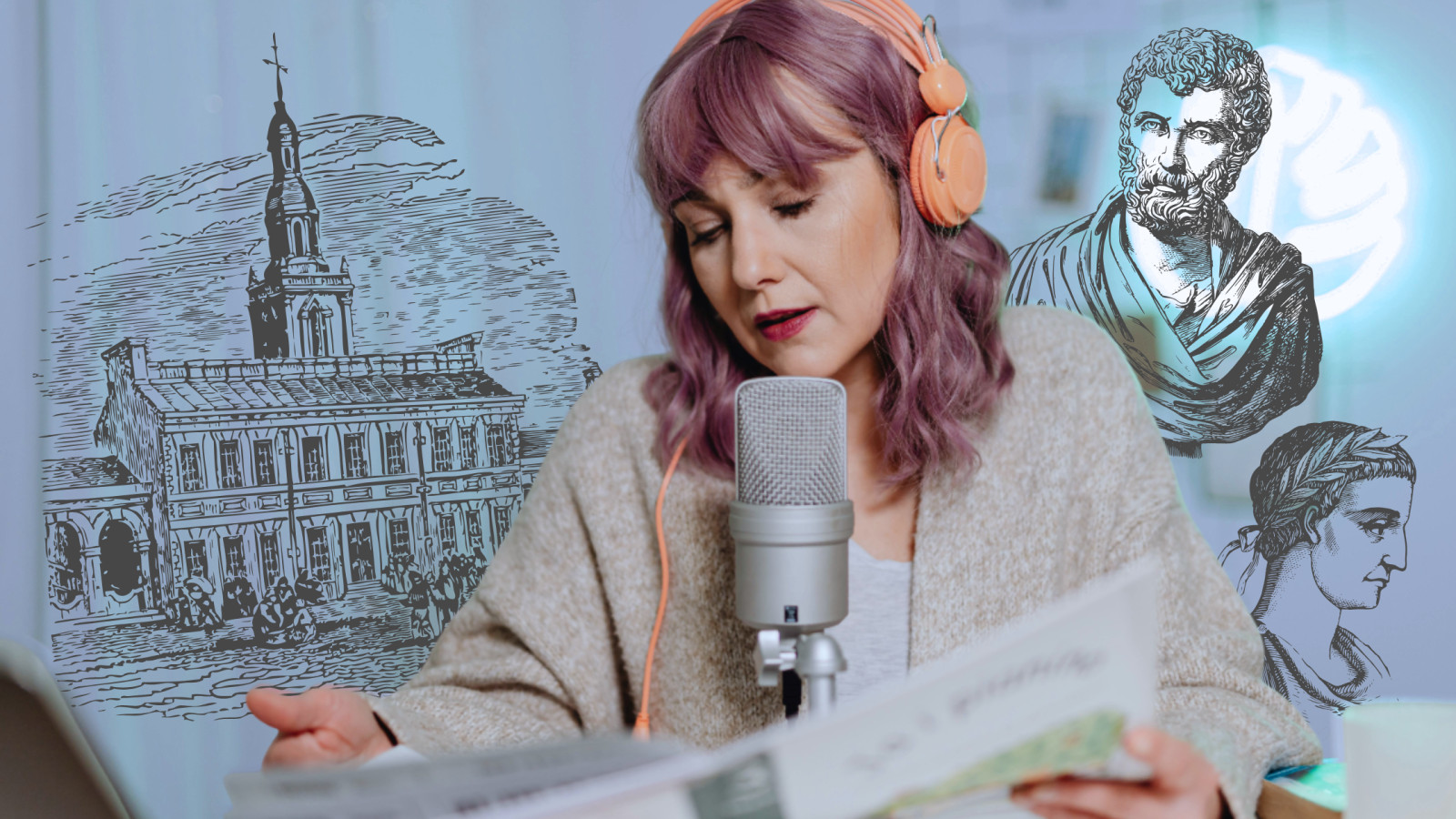The future is podcast scenes: What podcasters can learn from history podcast success


Whether the result of eschatological anxiety caused by shifting global political alignments or the decline in humanities students in academic institutions, the business of history – especially in audio – is booming. According to Bloomberg, history book sales are up significantly, and the most popular history podcasts are outperforming institutional audio brands like This American Life.
While decades long television programming on networks like The History Channel indicates prolonged interest in history-based content, podcasts have brought engagement to a whole new level. History has become one of podcasting’s most successful scenes, and history podcasters now have fandoms rivalling the level of music stars. For history scene podcasts like The Rest Is History, the future now lies in tours, television, and film, but for other podcasters looking to emulate history’s success, nurturing scenes and fandoms will become vital for further growth.
According to Bloomberg, thousands of The Rest Is History fans have come out to see hosts Tom Holland and Dominic Sandbrook discuss history in massive venues typically reserved for popular musicals and musicians. Goalhanger, the podcast’s production company, has also signed a Hollywood deal to produce television and film content based on the podcast.
None of this success would have happened without the relationship that Holland and Sandbrook have formed with their fans. In fact, Goalhanger avoids interview-based episodes in order to develop this “parasocial” relationship between listener and host even more. There is a significant interest in the content itself, to be sure, but the power of the podcast itself is turning that content interest into parasocial engagement. The community-based scene forms as listeners begin to identify with both the message and messenger.
Featured Report
Defining entertainment superfans Characteristics, categories, and commercial impact
Superfans represent a highly valuable yet consistently underleveraged audience segment for the entertainment industry. What drives this disconnect is the fact that – despite frequent anecdotal use of the term – a standardised, empirical definition remains absent, preventing companies from systematically identifying, nurturing, and monetising th...
Find out more…History podcasts are not the only – or even first – category of podcasts to become adept at forming this bond. Much of the alternative right wing media ecosystem also benefits from an environment in which audiences are hungry for a certain type of content delivered by hosts who make listeners feel like they are part of a casual, unfiltered, and often comedic conversation. There is something to be said for the ability of podcasting to borrow from other genres to make less entertainment-focused genres more engaging.
As media and audience fragmentation continue, interest groups like these are going to be crucial for podcasters in any podcast category to identify and tap into. Converting that interest group into a highly engaged community will require a combination of well-produced content and podcaster authenticity. Listeners have to believe that podcasters are just as nerdy and passionate as they are about certain topics. Podcasters must be part of the scenes they are helping to create.
As Goalhanger’s Jack Davenport puts it, “We want to make shows that people feel they want to spend a lot of time with, and that means effectively feeling like you’re part of their relationship”. Sometimes podcasters stumble upon the perfect combination organically. Oftentimes, there is a deliberate audience strategy behind cultivating and monetising scenes, and in order to develop more scenes in other podcast categories, independent podcasters will have to think strategically about how to do the same.

The discussion around this post has not yet got started, be the first to add an opinion.